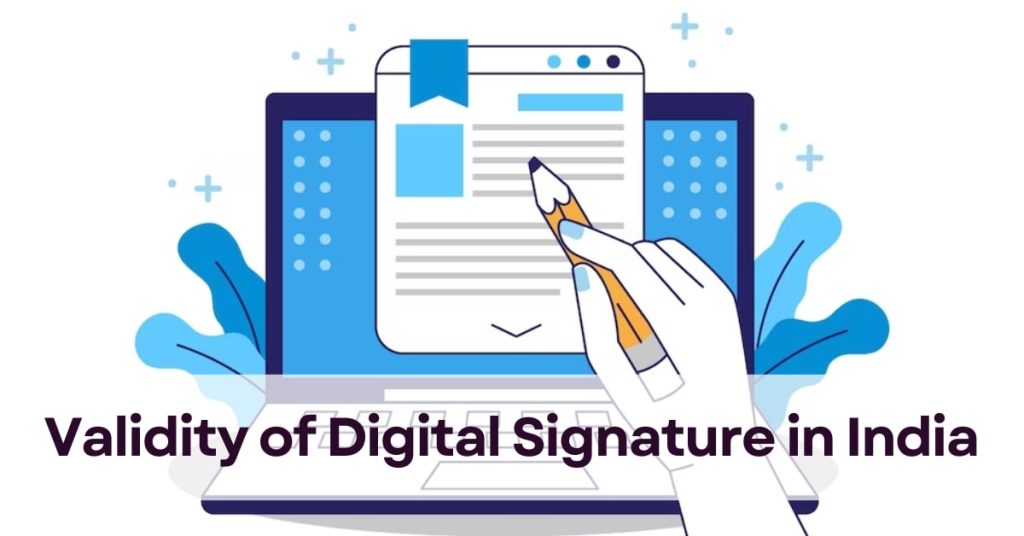
Table Of Content
- Is Digital Signature legally valid in India?
- What makes a Digital Signature valid?
- Advantages and Disadvantages of Digital Signatures
- What cost does we have to pay for Digital Signature?
- Documents on which eSignature are Invalid
- Can I use expired Digital Signatures?
- Supreme court judgements on Digital Signature
- Conclusion
eSign simply means the electronic signature where the physical presence of the individual is not required. Under the IT Act 2000, India government provided the electronic signature facility to its citizens. Moreover, it eliminates the need for physical signatures on paper-based documents.
eSign is a legally valid and secure method of signing documents electronically. The method used here is aadhaar-based authentication, which is the unique identification number issued to residents of India. The validity process ensures the identity of the signer. It helps to establish the integrity and authenticity of the signed document. It is also important to note that eSignature is specific to the Indian Government and is governed by the laws and regulation of India. The validity of Digital Signature in India and acceptance of eSignature may vary from the outer world in India. The concept of eSign we will be discussing it further:
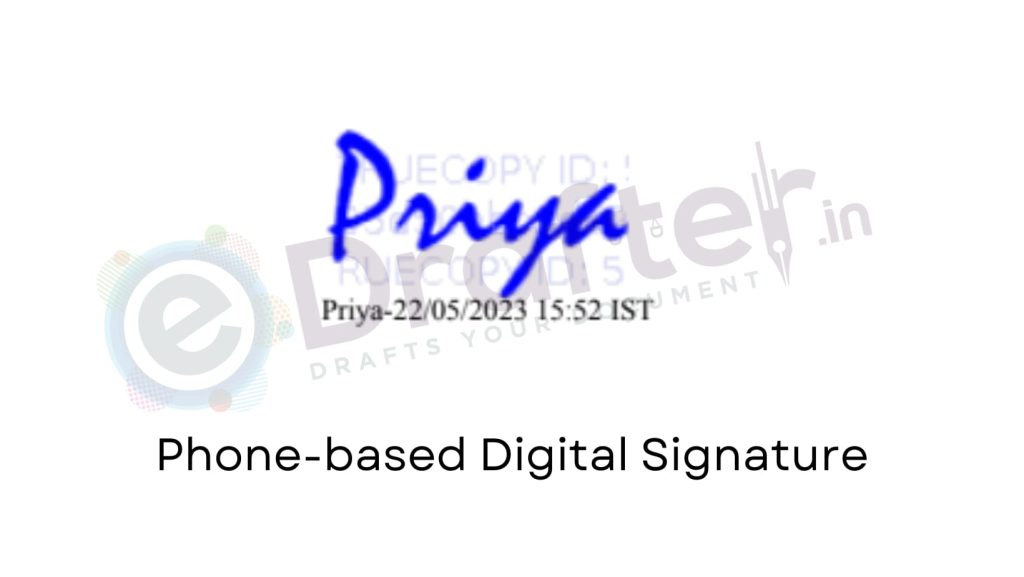
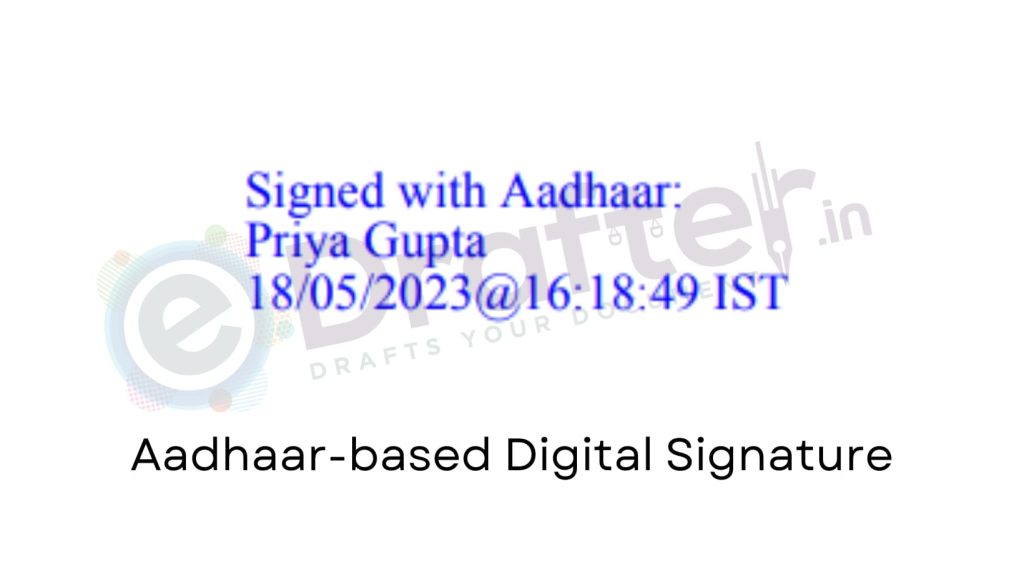
You can go through our detailed blog on what is Digital signature to know about eSign and its uses.
Is Digital Signature legally valid in India?
Yes , Digital Signatures are valid and legally recognised in India. As mentioned earlier, the information technology act 2000, along with the subsequent amendments, provide the legal framework for Digital Signatures in India. Under the Act, the validity of Digital Signature has the same legal standing as a handwritten signature. It ensures the authenticity, integrity, and non-repudiation of electronic documents and transactions. The usage of Digital Signatures is in various sectors, including e-commerce, government services, legal agreements, banking, etc.
Digital Signatures provide a secure and efficient way to sign documents electronically. It also ensures that the signatory’s identity is verified and the integrity of the document is maintained. It’s important to follow the prescribed procedures and guidelines while using the Digital Signatures to ensure the validity of Digital Signature in India and its legal acceptance.
The validity of eSignature in India is based on a key factor which is Certifying Authorities, to use the electronic way to sign. The individuals or entities need to obtain a digital certificate from Certifying Authorities (CA) recognised by the Controller of Certifying Authorities (CCA). The certificate contains the public key corresponding to a private key held by the signer, which is used to create the Digital Signature.
What makes a Digital Signature valid?
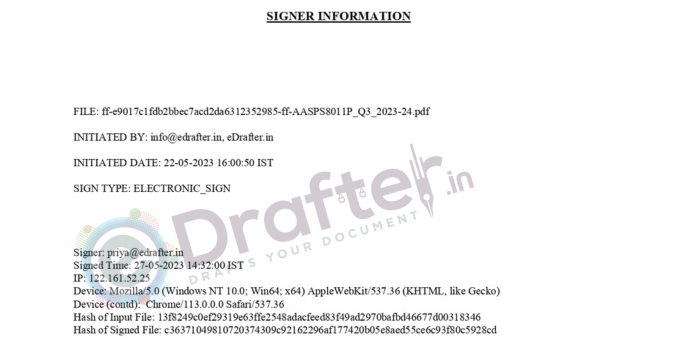
Moreover everything is one and the same when it comes to the validity of Digital Signature. The prime factors which makes a Digital Signature valid are as follows:
- Digital Certificate which we have already discussed above about a private key that is securely held by the signer.
- The CCA performs a verification process to ensure that the signer’s identity information matches the information provided during the certificate issuance. This helps establish the association between the Digital Signature and the identity of the signer.
- A timestamp confirms that the Digital Signature was created at a specific point in time and provides evidence of the chronological order of signatures. It helps prevent any subsequent claim that the signature was created after the document’s content was known.
- The Digital Signature should comply with the applicable legal framework governing electronic signatures in the relevant jurisdiction. Different countries may have specific laws and regulations regarding the use and validity of Digital Signatures. Therefore, it’s essential to adhere to the requirements of the applicable legislation.
It is important to know that the specific requirements for validity may vary depending on the jurisdiction and document. It is advisable to consult the relevant laws and regulations or seek legal advice to ensure compliance and validity of Digital Signature in a particular context.
What are the Advantages and Disadvantages of Digital Signatures?
Digital signature has its own merits and limitations as well. There is nothing which does not have its benefits and limitations. Let us discuss it below:
Advantages of Digital Signatures:
1. Authentication: Digital signatures provide a high level of authentication and verification. They ensure that the message or document has not been tampered with during transmission or storage and that it originates from the expected sender.
2. Non-repudiation: A digital signature legally binds the signer to the content of the document or message. It prevents the signer from denying their involvement or the authenticity of the document in the future. This is crucial in legal and business transactions where proof of agreement or consent is necessary.
3. Data Integrity: Digital signatures ensure the integrity of the data. Even a minor change in the original document will result in a different signature, making it easy to detect any tampering attempts.
4. Efficiency: Digital signatures eliminate the need for paper-based processes, manual signatures, and physical delivery. This streamlines document signing workflows and reduces administrative overheads and costs associated with printing, scanning, and shipping documents.
5. Time-saving: Digital signatures can be applied quickly and conveniently. They allow for instant signing and sending of documents, saving time and enabling faster decision-making processes.
6. Cost-effective: Adopting digital signatures can significantly reduce costs associated with paper, printing, and physical storage. It also eliminates the need for courier services or in-person meetings to obtain physical signatures.
Disadvantages of Digital Signatures:
1. Technological Dependence: Digital signatures rely on technology, such as encryption algorithms and digital certificates. If there are vulnerabilities in the underlying technology or infrastructure, it could compromise the security and reliability of the digital signature.
2. Key Management: Proper management of cryptographic keys is essential for the security of digital signatures. Key storage, distribution, and protection require careful attention to prevent unauthorized access or misuse. Failure to manage keys securely can undermine the effectiveness of digital signatures.
3. Adoption Challenges: Widespread adoption of digital signatures requires standardization and acceptance across various industries and jurisdictions. The lack of uniformity in regulations and legal frameworks can create barriers and complicate cross-border transactions.
4. User Awareness and Trust: Some individuals may not be familiar with digital signatures or may be skeptical about their validity. Building user awareness and trust is crucial for the widespread acceptance and adoption of digital signatures.Though maximum people do but still there are communities who are not aware of it. So acquiring their trust would of course a little difficult.
5. Potential for Signature Replication: While digital signatures provide non-repudiation, it is still possible for someone to replicate a digital signature if they gain unauthorized access to the signer’s private key. This highlights the importance of safeguarding private keys and employing strong security measures.
6. Long-term Preservation: Ensuring the long-term preservation and verifiability of digital signatures can be a challenge. As technology evolves, older digital signature formats may become outdated, potentially making it difficult to validate signatures in the future. Continuous efforts are required to ensure compatibility and preservation of digital signatures over time.
That’s it these are benefits and limitations of digital signature according to my knowledge.
What cost does we have to pay for Digital Signature?
The digital signature charges are very nominal since the methods are way to easy and up-to-date. As already mentioned above about the two ways of esignature in details. The nominal charges for both the methods are of 19/- for phone based opt method and for the aadhaar card based otp will be 39/-. Convenient and simple for the users.
What are documents on which eSignature are Invalid?
Electronic signatures and the IT Act itself are not applicable to the following under Section 1(4) of the IT Act, 2000:
- Any class of papers that the Central Government designates by a notification occasionally published in the Official Gazette.
- Any contract, interest, or conveyance relating to the sale of real estate that is not personal property in India.
- Per Section 1A of the Powers of Attorney Act of 1882, a power of attorney.
- According to Section 2(h) of the Indian Succession Act, 1925, a will and/or testament.
- According to Section 13 of the Negotiable Instruments Act of 1881, a negotiable instrument.
- A trust according to Indian Trusts Act of 1882 Section 3.
Can I use expired Digital Signatures?
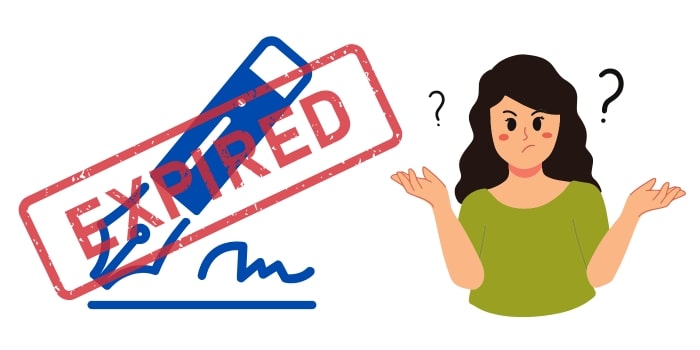
Certainly not, you should avoid using expired Digital Signature. An expired eSignature does not hold the same level of trust and validity as an active and current Digital Signature. There are terms or reasons why you should not use an expired Digital Signature:
- An expired Digital Signature may not be legally recognised or accepted. The validity of Digital Signature is often tied to the validity of the electronic certificate. Once it is expired the electronic signatures become invalid, and its legal standing may be questioned.
- The security also becomes questionable after expiration of the certificate. So it’s normal for the people to trust on the eSigned document.
- Many verification problems pop up while using it. The Digital signature verification process involves the legal validity of Digital Signature and status. The end result would be the failure since the expired Digital Signature doesn’t last long.
Supreme court judgements on Digital Signature
The Supreme Court judgment on Digital Signature says that each and every citizen should have access to the legal Digital Signature. No discrimination should be done with any sections of the people. Even the people who are disabled should be enlightened with the electronic signature service. The citizens of India should benefit from this service and spread out pan India.
Conclusion
One that might have been cleared to you all might be e document becomes legal after it is digitally signed and the benefits of having Digital Signature. The validity of Digital Signatures in India does matter a lot since if you want to go with the flow of advanced India then you must know how to do Digital Signatures. The service of Digital Signature has given a boon to the Indian e-commerce industry as well as to the people, an easy way to handle their crucial legal errands.


